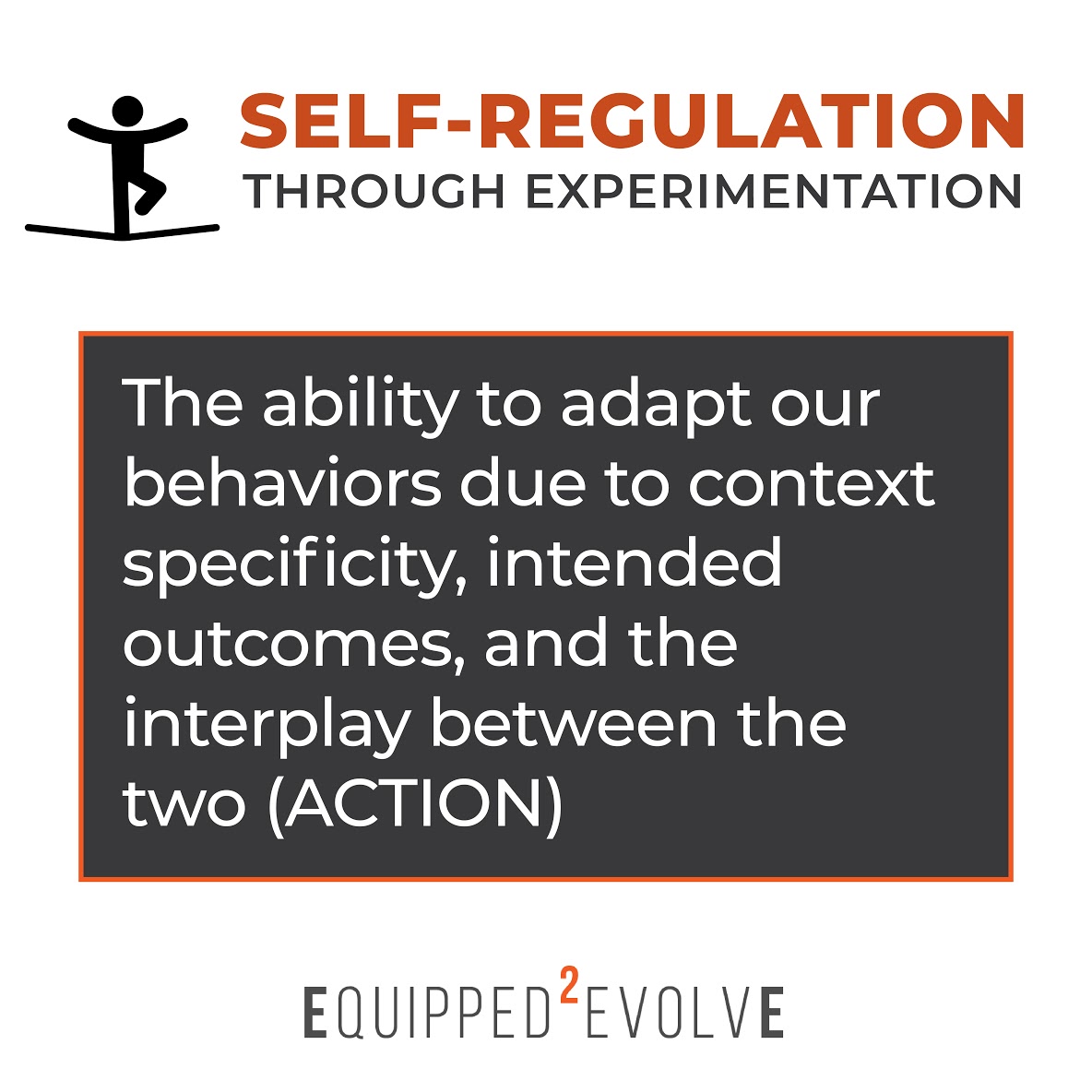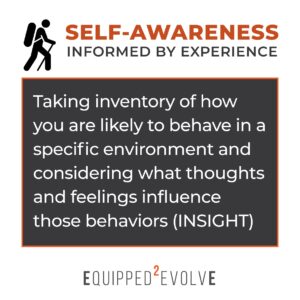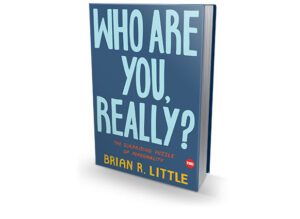Self-awareness gives you insight based on your previous and current experience to take the necessary action to adjust your behavior to be more situationally flexible. Your willingness and ability to experiment with different thoughts, behaviors, and coping mechanisms is a measure of how well you can self-regulate.
WHAT it is
The ability to adapt your behaviors to the situation, the intended outcome(s), and the interplay between the two.
HOW to train it
Utilize this formula: Situation X Behavior = Result.
For example, compare and contrast the makeup of these two different contexts:
- One context is a situation in which you are involved in some type of formal competition or performance setting. Therefore, the intended result associated with this situation is to test yourself against others that are also competing or against some previous measurements and/or standards of your past performances. If this is the case, then, generally speaking, the behavior that would best support your situation and intended results (outcome) would be behaviors that are assertive, decisive, goal directed, and action oriented.
- In contrast, another situation is one in which you are involved in some type of practice setting. Therefore, the intended result associated with this situation is to enhance your learning about yourself, others, and/or some relevant competency. When this is the case, then the behavior that would best support your situation and intended result (outcome) would be behaviors that are patient, systematic, conscientious, and contemplative/process oriented.
WHY this skill is so critical
Expertise and high performance depends on one’s adaptability and transferability of their skills. Self-regulation is the process by which you improve your mental flexibility in order to be more adaptable and successful in an infinite and diverse number of contexts.
EQUIP yourself to be more capable of self-regulatory strategies by training self-reflection.




